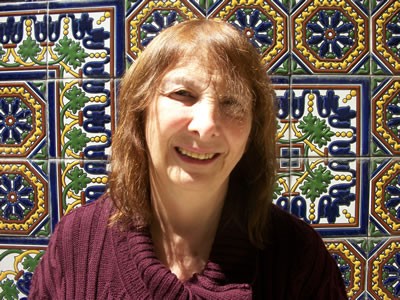Inés Cortazo
Professor/ Owner, San Telmo Colonial
Age: 78
San Telmo
• When did you open up the San Telmo Colonial Guesthouse?
A brother of mine opened it up, oh a long time ago, and in the last twenty years we started receiving foreigners. We were the first!
Before that we received mostly national tourists. I called it ‘the divorce club’ because we received a lot of guests who were in the midst of separating from their partner and looking for a new place or waiting to see if they might get back together with their husband or wife. Some people stayed here for two years under those circumstances.
So it’s changed through the years, especially after the economic crisis.
Our first foreign guests were tango dancers from Europe and people on sabbatical for three or four months. At first we were recommended a lot because I speak English, French and Portuguese and also we have a pretty relaxed atmosphere.
• What kind of guests do you get these days?
These are apartments with kitchenettes so it doesn’t appeal to every tourist. A lot are German and we get people from Switzerland and France. We get a lot of people involved in the tango world and word has spread mouth to mouth among that community, it has worked well for us.
I have others that come for conferences — Americans and British that come to teach courses.
We don’t want to create false expectations so I let people know that there isn’t 24 hour service here and that we don’t have a bar, that they won’t have a staff looking after their every need like mom and dad. But they will have a good mattress, air conditioning and hot water 24 hours a day and if people want to sit down and have a cup of coffee and talk I’ll do that too.
• How has San Telmo changed through the years?
There is a lot of real estate speculation now in San Telmo. Traditionally it was a neighborhood that was accessible for young people to rent an apartment but it has gotten pretty expensive.
I can compare it to Palermo since I lived in Palermo for many years. San Telmo is a neighborhood that has a more family-type feeling. There are the little old ladies in the grocery store, the kids leaving school, the guy in the hardware store that always says hello — it is the day-to-day of the middle class.
So it’s a very friendly neighborhood and a good choice for foreigners. I have people who come once or twice a year and they love to be recognized when they go to the store or the restaurant. You can also do a lot of walking around, it’s easy to get around the city from here.
San Telmo is full of history. We have the most beautiful churches, schools and places like the Liberia de Avila at Bolivar and Alsina streets. Not many neighborhoods can claim that type of history.
• If you lived in San Telmo as a kid you must have visited the Costanera Sur back then, has it changed much?
Yes, it changed a lot. That was the classic place to go when you were 20-years-old to walk around hand-in-hand with your boyfriend. There were little carts and choripan (sausage sandwich) vendors. Of course, Puerto Madero didn’t even exist.
• And when you were young Argentina must have been much wealthier?
Well, there were poor people back then but the makeup of the underclass is different now. At that time most of the slums contained people who were from other parts of Argentina.
That’s not to say that the people coming to Buenos Aires now bother me. To me people shouldn’t have to do paperwork in order to live somewhere. Borders shouldn’t even exist. If people want to come here, they should be free to come.
• How did you learn three languages aside from Spanish—? That is not so common among many people here.
I studied at an English primary school here in Buenos Aires and in high school I took French. I also studied at the Alliance Frances. I learned Portuguese real quick because I moved to Puerto Alegre (Brazil) during the military dictatorship with my husband and kids.
• Was your life in danger during the dictatorship?
Yes, I was a sociology professor at the university and it was dangerous for professors at that time.
• How had Argentina changed when you returned from Brazil?
It was another country. The dictatorship really marked the country. Obviously, if your friends are dead or have ‘disappeared’ that changes everything. And the people returning had changed as well after living in another country with different customs.
• You are a professor, you have a guesthouse and you raised three kids, how do you do it all?
If you’re not stressed out, it’s possible!
